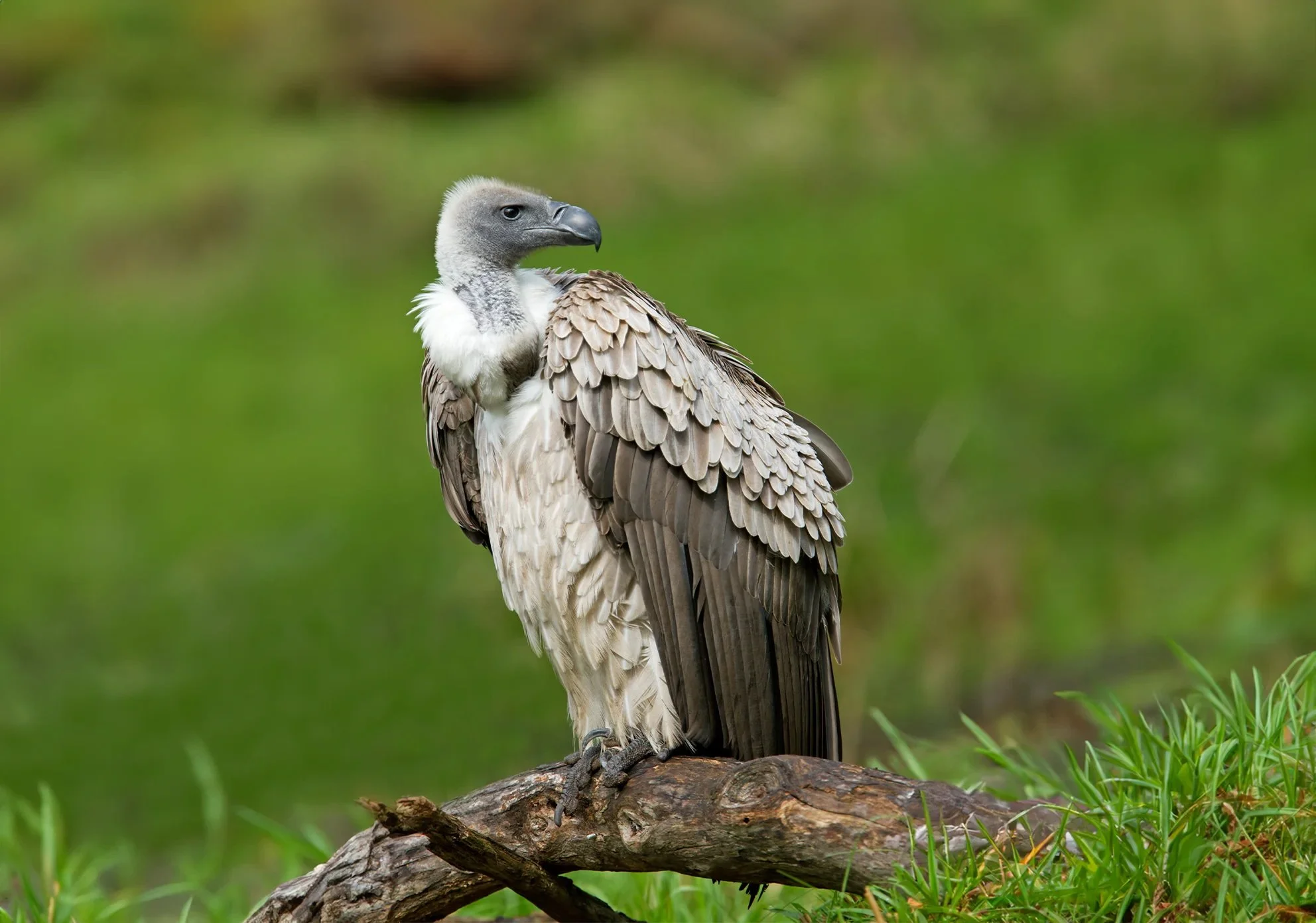Vultures Are Disappearing From Ghana. Here’s Why You Should Care.
In Ghana, there used to be a close association between vultures and rubbish heaps. You couldn’t go anywhere without seeing a vulture perched on a rubbish heap. Whenever we had to dump food scraps, I would often spot them up close behind the school kitchen’s waste disposal area. And whenever our dining table was punished by the seniors for being noisy at lunchtime, we had to wash all the plates everyone had eaten in. Before that, we had to clear all the scraps and dump them at the waste area. The brown vultures were huge and would immediately fly off whenever we got too close to the rubbish heap. Some of them were even bolder and would just stare us down and wait for the fresh scraps. We would often ward them off with stones and shouts, seeing them as bad luck and dirty birds. Little did we know of their importance.
After we graduated, I didn’t quite see any vultures until I started church at ICGC Christ Temple Abossey Okai in 2009. The church was in the same vicinity as Sodom & Gomorrah, a literal national waste dump of e-waste, plastics, and organic waste. There, it was easy to see both crows and vultures hovering around the dump sites, which were about 300 metres away from the church.
A few weeks ago, on October 11, the world celebrated World Migratory Bird Day. Curiosity got the better of me, and I decided to explore the world of birds that migrate to Ghana during the winter months. To my surprise, I stumbled upon the Birdlife.org website, which provided informative fact sheets not only about migratory birds but also about the state of bird species that are at risk in our country. As I scrolled through the list of bird species, I couldn’t help but notice the brown vulture. It had been a while since I had seen one, and a sense of nostalgia washed over me. However, my joy was quickly replaced by sadness as I realized that the brown vulture had been labeled as critically endangered. A flood of questions swirled in my mind, and I couldn’t resist the urge to delve deeper into the reasons behind this dire situation.
Let’s start off with bit of background on the species of vultures we have.
Vulture Species In Ghana
Would you believe we have more than one vulture species in Ghana? The commonest ones are the
Hooded Vulture (Necrosyrtes monachus) which is the commonest specie we see/used to see on rubbish heaps. They have brown features with a partially balding head.
Hooded vulture
2. White-backed Vulture (Gyps africanus)
Other vulture species are:
White-headed Vulture (Trigonoceps occipitalis)
You may be telling yourself as you read this, “Why should I care if vultures are critically endangered? They are dirty birds.” That’s the misconception we’ve held over the years.
Why Vultures Matter.
Vultures physiological makeup includes a highly acidic stomach which breaks down rotting flesh which would otherwise be deadly to other animals.
Vultures basically;
Clean up carcasses quickly so disease like rabies, anthrax and botulism doesn’t spread.
Save money for communities by removing carcasses (reduces need for disposal).
They are key members of the food web and play the role of scavengers.
Currently in Ghana, vultures are dying out because of the following reasons;
killed for traditional medicine
poisoned after eating animals poisoned by poachers
less access to slaughterhouses which are being modernized
less roadside kills.
consumption ( Who is eating vulture??)
loss of habitats due to deforestation and collision with electric lines.
As a Ghanaian;
Don’t buy vulture parts or medicines made from vultures.
Support local NGOs/volunteer for vulture monitoring or awareness events by joining campaigns such as the Ghana Vultures Conservation Campaign.
Report suspected poisoning or dead birds to wildlife authorities, DO NOT EAT DEAD BIRDS!
Encourage humane abattoir waste practices that either allow safe scavenging or ensure proper disposal.
I also discovered the work being done by the West Africa Vulture Conservation during my online research for this blog post and it’s encouraging to see definitive action plans at improving the conservation of vulture species in it’s member states. The Ghana Wildlife Society also shares useful fact sheets on bird species in Ghana on their Instagram and I suggest you follow them also.
Galamsey and other human created disasters are slowly killing off bird species and we need to pay attention by raising awareness and engaging with our communities on their importance and impact on our lives should they be extinct.
You should really care about the rapidly declining numbers of vultures. Just imagine your child innocently touching the dead carcass of a cat lying on your compound which would have been grabbed up by a vulture ‘nature’s ambulance’. All kinds of diseases would destroy our very livelihoods!
Let me ask you, when was the last time you saw a vulture? 😐








